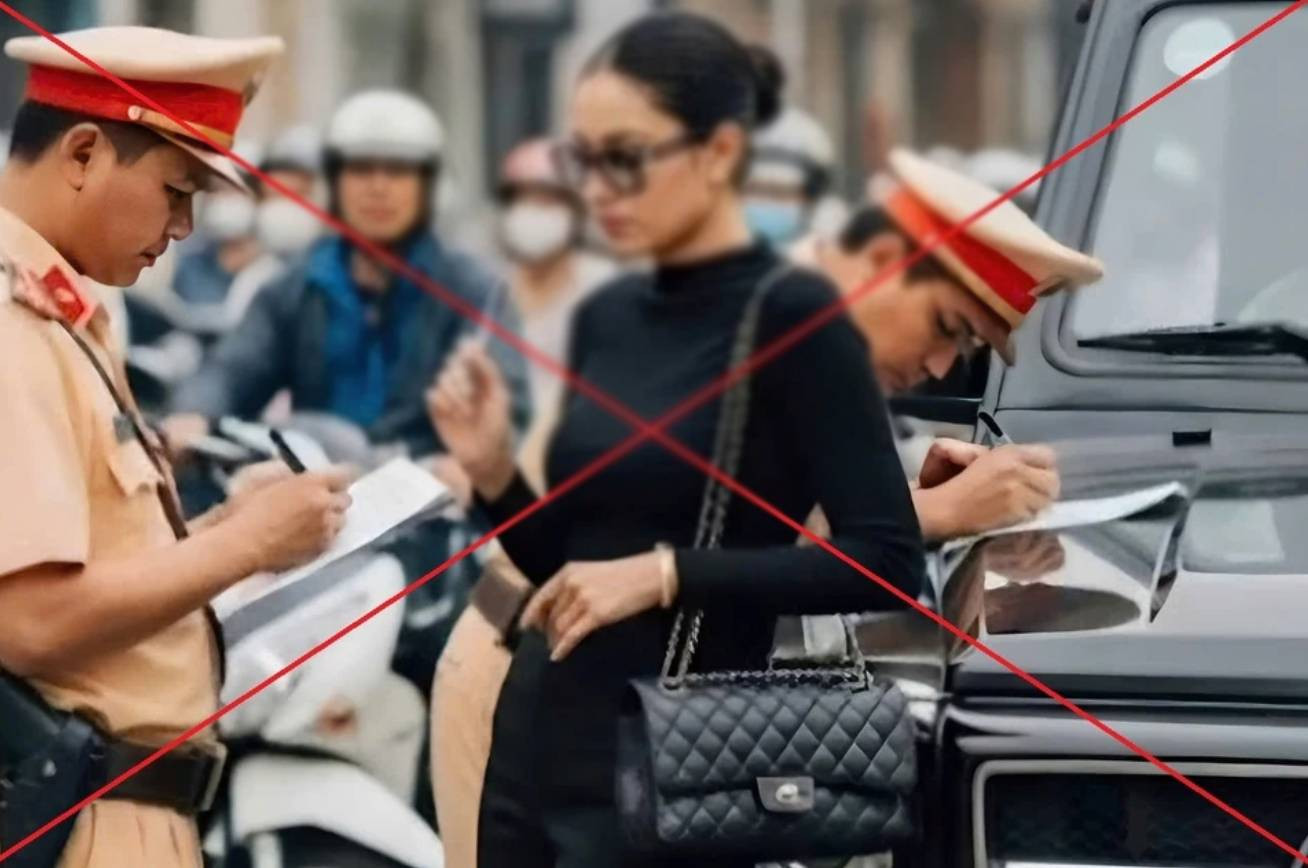A recent social media trend in Vietnam featuring AI-generated images of fictional “rich women” or “tycoons” being fined by traffic police has drawn sharp warnings from legal experts and authorities for potentially spreading misinformation and undermining public trust in law enforcement.
These posts typically depict AI-generated luxury car owners posing confidently as they are seemingly fined by officers from the Traffic Police (CSGT). While most are labeled as "AI-generated" and shared with a humorous intent to gain likes and followers, they have quickly stirred controversy.
Fake images, real consequences

Lawyer Dang Van Cuong, Head of the Chinh Phap Law Office, explained that such posts constitute a violation of Vietnam’s Cybersecurity Law, specifically Article 8, which prohibits spreading false information online.
Depending on the nature, intent, and societal impact, individuals behind these posts may face either administrative penalties or criminal charges, particularly if their content is deemed socially harmful.
Under Point a, Clause 1, Article 101 of Decree 15/2020, as amended by Decree 14/2022, administrative fines ranging from 10 to 20 million VND (approximately 390 to 780 USD) may be imposed for using social networks to share fake or defamatory content that insults the reputation of organizations or the dignity of individuals.
In more serious cases, violators could be prosecuted under Article 288 of the Penal Code for “illegally providing information on computer or telecommunications networks,” facing prison sentences of up to 7 years.
Impact on public perception and law enforcement
According to lawyer Cuong, although AI images may appear harmless, they can cause distorted perceptions and diminish respect for legal authorities. Public comments on such posts often include disrespectful remarks toward traffic officers, further damaging public trust and undermining social order.
“These images may encourage a dismissive attitude toward the law, especially when they trivialize the role of police officers,” Cuong emphasized.
While some offenders may face only administrative action, others could be criminally charged if their actions negatively impact public order, national security, or the credibility of law enforcement agencies.
When determining penalties, relevant authorities will examine the intent behind the content, the accompanying captions and comments, and any actual consequences on social order and public perception. “Each case will be individually assessed to ensure that the punishment fits both the action and its effects,” said Cuong.
Y Nhuy